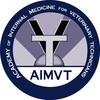A NOTE FOR INTERNATIONAL CANDIDATES:
AIMVT is a US-based organization and the AIMVT certifying exam was originally developed for candidates from the United States. Therefore, expect to see information on the exam that may be specific to the US. Every effort has been made to make the exam as location-independent as possible, however some differences may exist.
AIMVT is a US-based organization and the AIMVT certifying exam was originally developed for candidates from the United States. Therefore, expect to see information on the exam that may be specific to the US. Every effort has been made to make the exam as location-independent as possible, however some differences may exist.
Sample Questions
Domain – DISEASES
1. Neonatal isoerythrolysis in foals results from what?
A. Absorption of bacteria through the umbilicus at birth
B. Coprophagy
C. Ingestion of anti red blood cell antibodies from the mare’s colostrum
D. Ingesting mare milk rather than colostrum in first 24 hours
Domain – DISEASES
2. Name the bacteria responsible for causing shipping fever pneumonia in cattle.
A. Escherichia coli
B. Fusobacterium necrophorus
C. Pasteurella haemolytica
D. Streptococcus zooepidemicus
Domain – PHARMACOLOGY
3. Non-steroidal anti-inflammatory toxicity in the equine patient can lead to which of the following conditions?
A. Anaphylaxis and hives
B. Hypothermia and low blood pressure
C. Respiratory depression and ataxia
D. Ulcerations of oral cavity and digestive tract
Answers 1. Answer: C 2. Answer: C 3. Answer: D
1. Neonatal isoerythrolysis in foals results from what?
A. Absorption of bacteria through the umbilicus at birth
B. Coprophagy
C. Ingestion of anti red blood cell antibodies from the mare’s colostrum
D. Ingesting mare milk rather than colostrum in first 24 hours
Domain – DISEASES
2. Name the bacteria responsible for causing shipping fever pneumonia in cattle.
A. Escherichia coli
B. Fusobacterium necrophorus
C. Pasteurella haemolytica
D. Streptococcus zooepidemicus
Domain – PHARMACOLOGY
3. Non-steroidal anti-inflammatory toxicity in the equine patient can lead to which of the following conditions?
A. Anaphylaxis and hives
B. Hypothermia and low blood pressure
C. Respiratory depression and ataxia
D. Ulcerations of oral cavity and digestive tract
Answers 1. Answer: C 2. Answer: C 3. Answer: D
Reading List
Knowledge List
Click here to view/download the Large Animal Internal Medicine Knowledge List.
Exam Domains/Exam Content
Click here to view/download the Large Animal Internal Medicine Exam Domain/Exam Content List.
